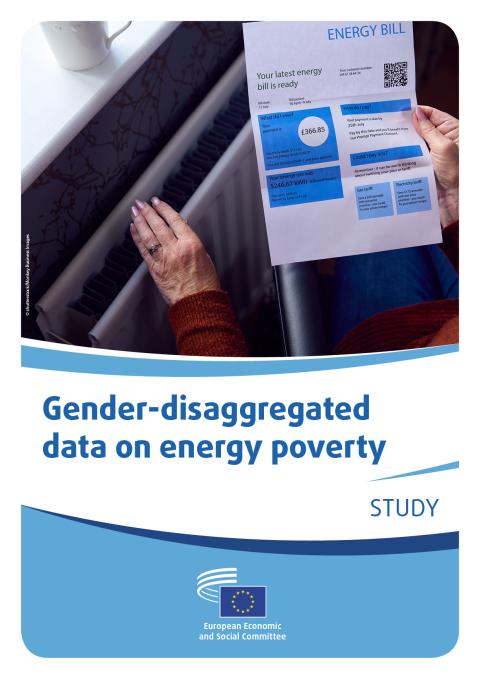European Economic
and Social Committee
Gender-disaggregated data on energy poverty
Recent economic shocks from the COVID-19 pandemic and the energy crisis in Europe following Russia’s invasion of Ukraine have brought energy poverty to the forefront of social and political debate. While EU policies increasingly address energy poverty, gender considerations remain overlooked. This study addresses this gap and aims to increase the understanding of the gender-energy poverty nexus, analysing existing literature and EU and national policies. It further analyses original qualitative data from seven EU Member States: Lithuania, Croatia, the Republic of Cyprus, Bulgaria, the Republic of Ireland, Spain, and Germany. By identifying the links between gender and energy poverty and the causes that contribute to women being more likely to be affected and affected differently by energy poverty, the study highlights critical factors, including age, the interplay of paid labour and care work, household structure, housing quality, and health status. The case study countries, which are diverse in terms of geography, climate and level of research and integration of the gender-energy poverty nexus into legislation and programmes, shed light on existing good practices as well as policy and implementation gaps. Ultimately, the study underscores the imperative for holistic, intersectional approaches in combating energy poverty at both EU and national levels.
Downloads
-
Gender-disaggregated data on energy poverty
